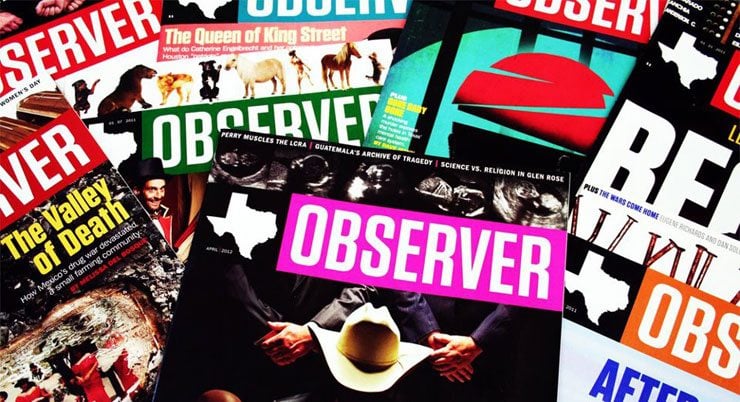Play all audios:
Anti-LGBT groups often allege that marriage equality will lead to people being put out of business when they refuse to hire gay applicants or serve same-sex couples based on religious
beliefs. However, in Texas, such a scenario would be virtually impossible, legal experts say. For one thing, no state or federal law prohibits discrimination against LGBT people. But even in
cities with nondiscrimination ordinances that include sexual orientation and gender identity, LGBT people aren’t really protected, according to Rebecca Robertson, legal and policy director
for the ACLU of Texas. “The ordinances don’t give people any protection against being fired,” Robertson told the _Observer._ “It’s not like we can get you your job back using the ordinances.
It’s not like we can get you back pay using the ordinances. All we can do is cite your employer. “It’s so funny to me to hear conservatives fretting that the result of the marriage ruling
will be that some Christian baker will have to provide a cake,” Robertson added. “My concern is that some lesbian mom will be exposed at work because she got married or because she tries to
assert a right for herself and her family, and she’ll be fired, and there won’t be a thing she can do about it.” Three years ago, the federal Equal Employment Opportunity Commission ruled
that job discrimination based on gender identity qualifies as illegal sex discrimination under Title VII of the Civil Rights Act of 1964. And in another historic decision in July, the EEOC
said job discrimination based on sexual orientation is also illegal under Title VII. However, EEOC decisions aren’t binding on federal courts, so it’s unclear to what degree they will
protect LGBT employees in Texas. Austin, Dallas, El Paso, Fort Worth, Houston, Plano and San Antonio have ordinances prohibiting discrimination against LGBT people in employment, housing and
public accommodations. While the ordinances differ, violations are typically Class C misdemeanors punishable by fines of up to $500—the equivalent of a traffic ticket. The ordinances
include exemptions for religious organizations, as well as for businesses with fewer than 15 employees. “People are not protected. I’m not going to equivocate on that,” Robertson said. “They
have only as much enforcement ability as our system of government gives to cities, and that is by definition limited. It’s great that cities are willing to use that enforcement power to
protect their residents from unfair treatment, but it’s certainly not a substitute for a state or federal solution.” Although some ordinances have been in place for more than a decade, it’s
unclear whether any complaint has been prosecuted. In 2014, for example, Dallas officials reported that none of the 61 complaints received since the ordinance took effect in 2002 led to a
prosecution. Even if a city attempted to prosecute, it’s questionable whether the charge would hold up if the defendant invoked the state’s Religious Freedom Restoration Act, Robertson said.
The 1999 law states that government may not “substantially burden” someone’s “free exercise of religion” unless there’s a “compelling interest.” With same-sex marriage now legal, more gay
couples will be seeking wedding-related services or requesting spousal benefits from their employers. In turn, the likelihood of anti-LGBT discrimination increases, so it’s possible the
ordinances will finally get their day in court. “We’re sort of on pins and needles waiting to see how it plays out,” Robertson said.

